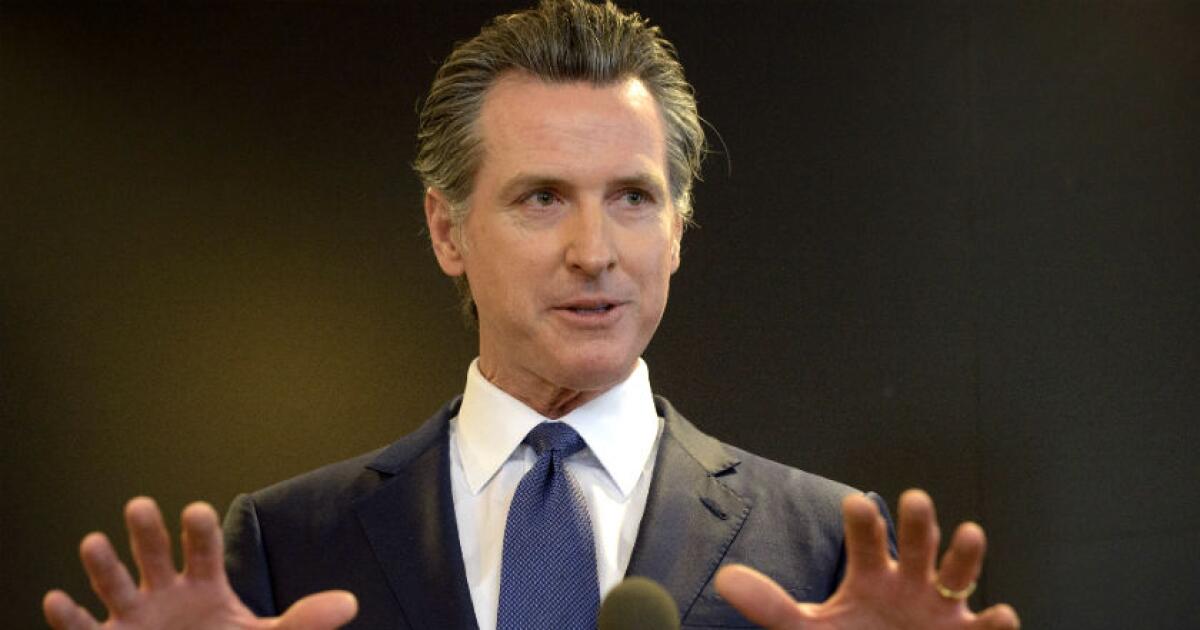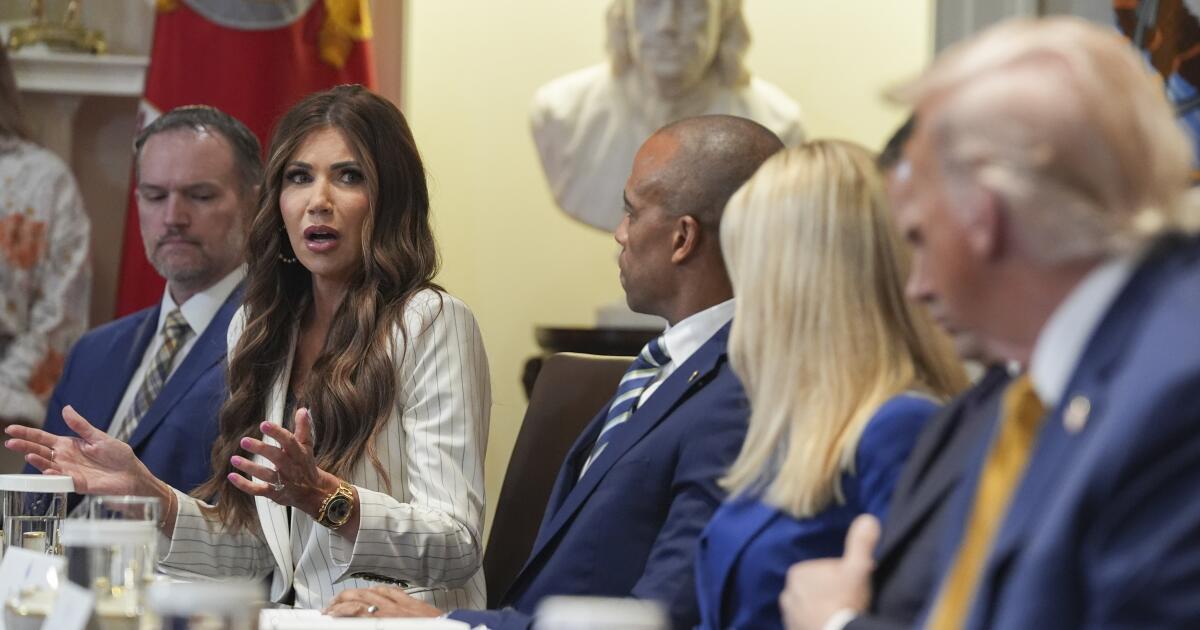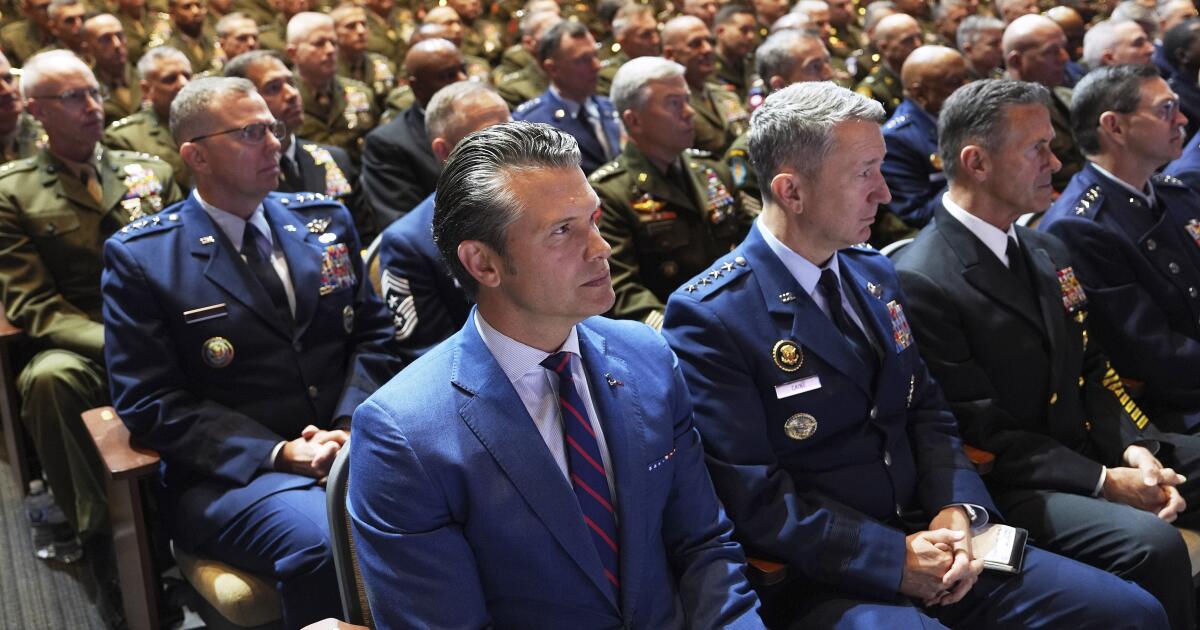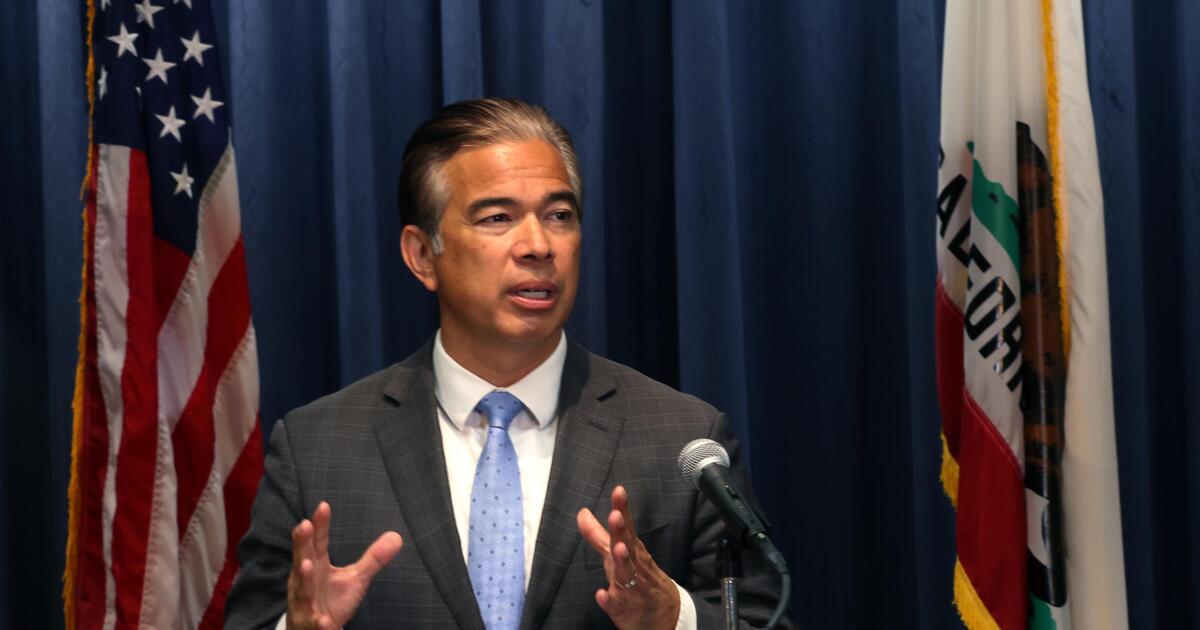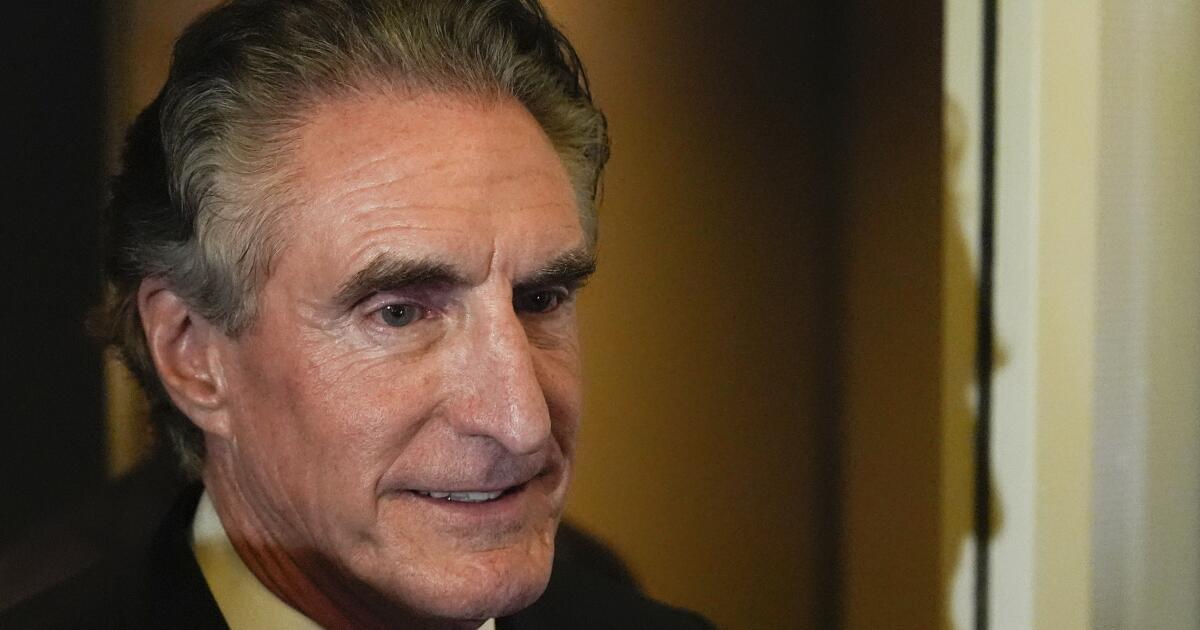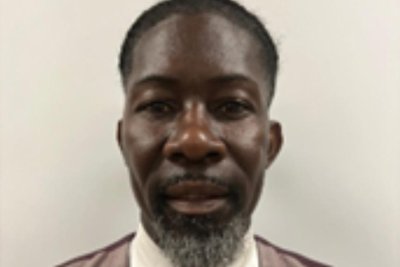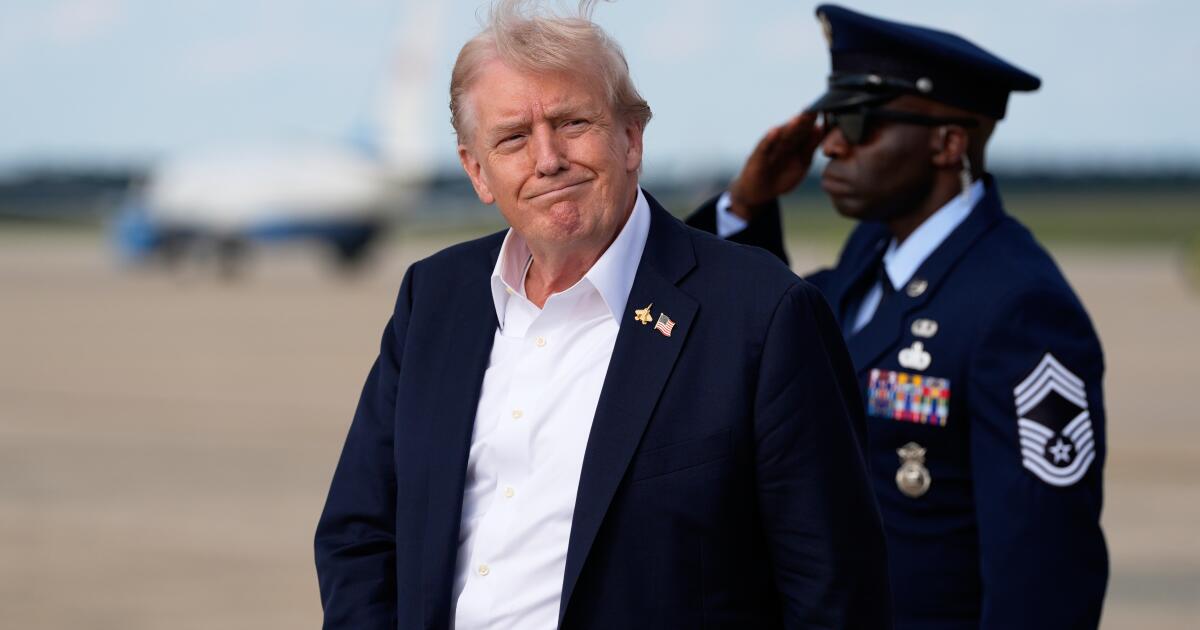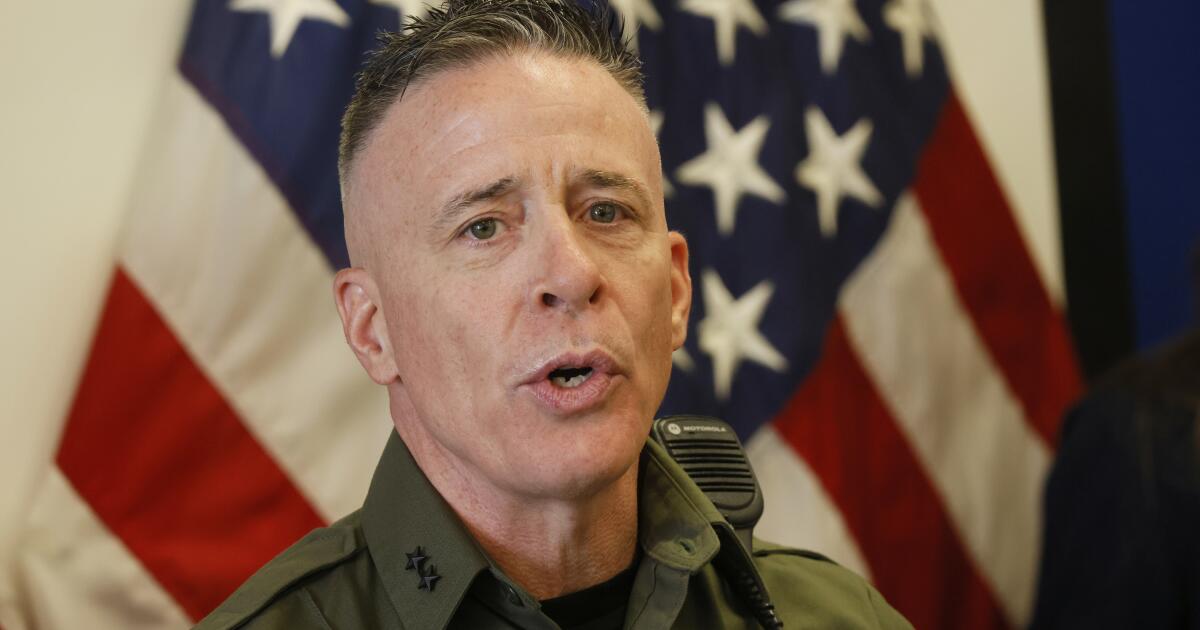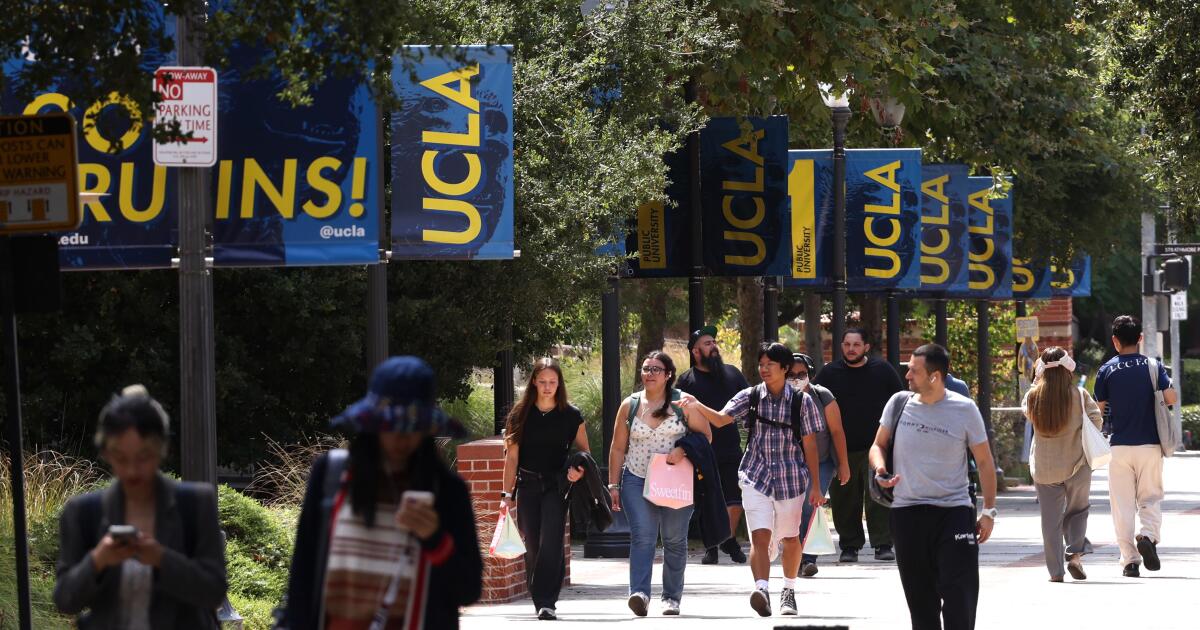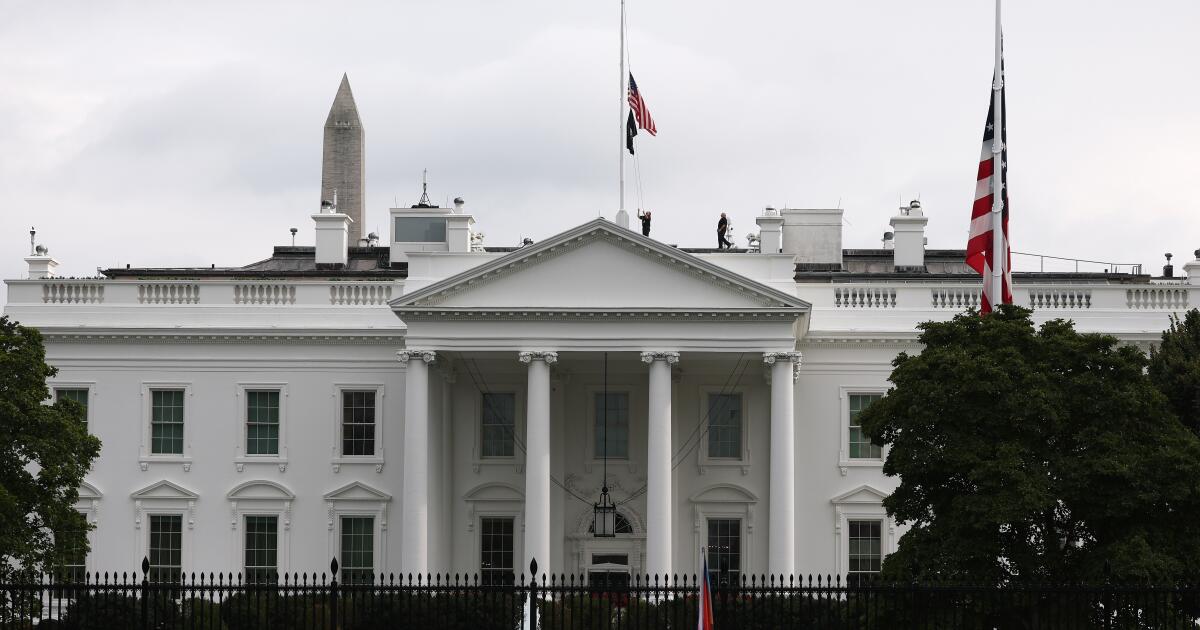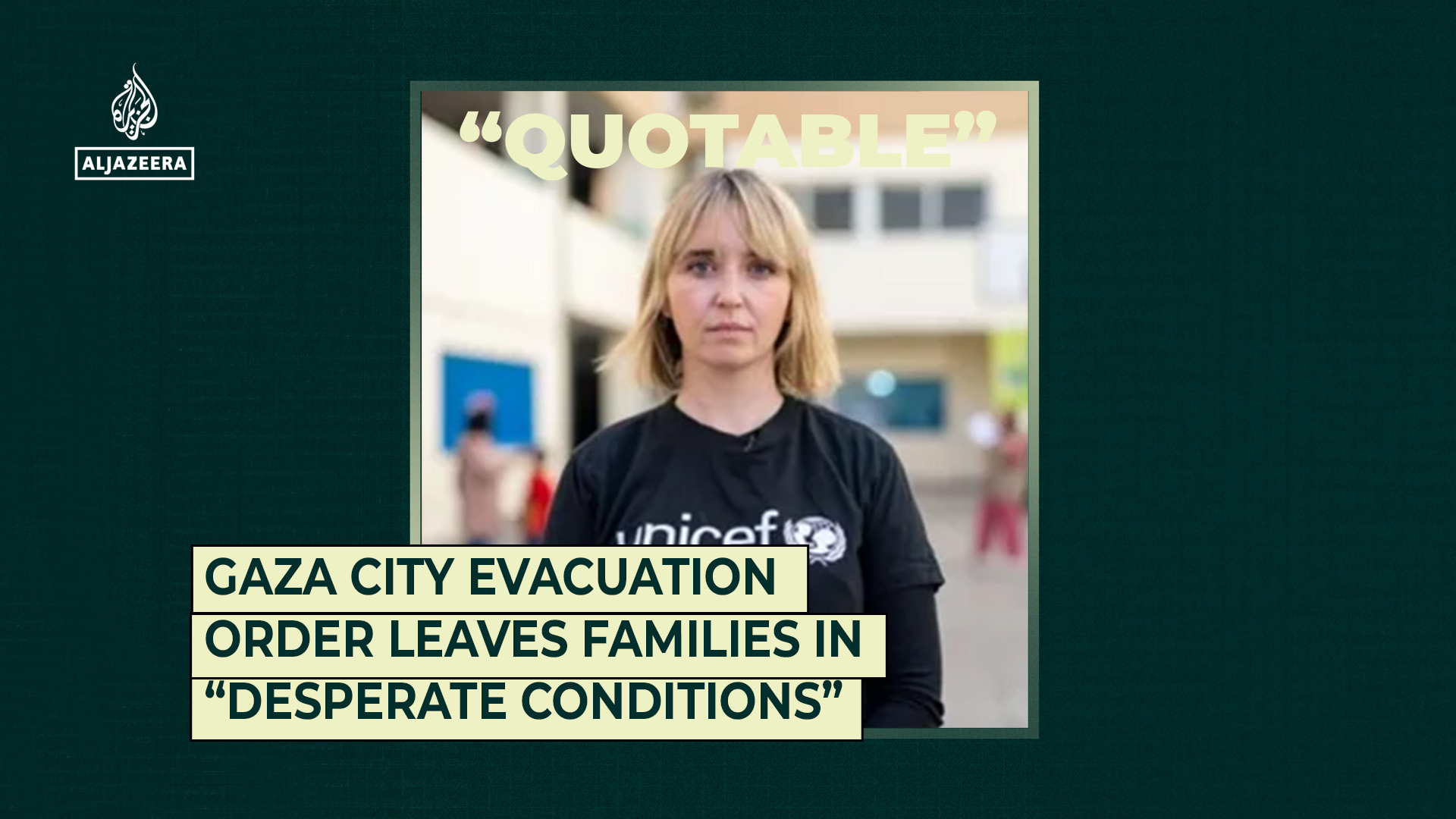A federal judge Thursday said she was “inclined to extend” an earlier ruling and order the Trump administration to restore an additional $500 million in UCLA medical research grants that were frozen in response to the university’s alleged campus antisemitism violations.
Although she did not issue a formal ruling late Thursday, U.S. District Judge Rita F. Lin indicated she is leaning toward reversing — for now — the vast majority of funding freezes that University of California leaders say have endangered the future of the 10-campus, multi-hospital system.
Lin, a judge in the Northern District of California, said she was prepared to add UCLA’s National Institutes of Health grant recipients to an ongoing class-action lawsuit that has already led to the reversal of tens of millions of dollars in grants from the National Science Foundation, Environmental Protection Agency, National Endowment for the Humanities and other federal agencies to UC campuses.
The judge’s reasoning: The UCLA grants were suspended by form letters that were unspecific to the research, a likely violation of the Administrative Procedure Act, which regulates executive branch rulemaking.
Though Lin said she had a “lot of homework to do” on the matter, she indicated that reversing the grant cuts was “likely where I will land” and she would issue an order “shortly.”
Lin said the Trump administration had undertaken a “fundamental sin” in its “un-reasoned mass terminations” of the grants using “letters that don’t go through the required factors that the agency is supposed to consider.”
The possible preliminary injunction would be in place as the case proceeds through the courts. But in saying she leaned toward broadening the case, Lin suggested she believed there would be irreparable harm if the suspensions were not immediately reversed.
The suit was filed in June by UC San Francisco and UC Berkeley professors fighting a separate, earlier round of Trump administration grant clawbacks. The University of California is not a party in the case.
A U.S. Department of Justice lawyer, Jason Altabet, said Thursday that instead of a federal district court lawsuit filed by professors, the proper venue would be the U.S. Court of Federal Claims filed by UC. Altabet based his arguments on a recent Supreme Court ruling that upheld the government’s suspension of $783 million in NIH grants — to universities and research centers throughout the country — in part because the issue, the high court said, was not properly within the jurisdiction of a lower federal court.
Altabet said the administration was “fully embracing the principles in the Supreme Court’s recent opinions.”
The hundreds of NIH grants on hold at UCLA look into Parkinson’s disease treatment, cancer recovery, cell regeneration in nerves and other areas that campus leaders argue are pivotal for improving the health of Americans.
The Trump administration has proposed a roughly $1.2-billion fine and demanded campus changes over admission of international students and protest rules. Federal officials have also called for UCLA to release detailed admission data, ban gender-affirming healthcare for minors and give the government deep access to UCLA internal campus data, among other demands, in exchange for restoring $584 million in funding to the university.
In addition to allegations that the university has not seriously dealt with complaints of antisemitism on campus, the government also said it slashed UCLA funding in response to its findings that the campus illegally considers race in admissions and “discriminates against and endangers women” by recognizing the identities of transgender people.
UCLA has said it has made changes to improve campus climate for Jewish communities and does not use race in admissions. Its chancellor, Julio Frenk, has said that defunding medical research “does nothing” to address discrimination allegations. The university displays websites and policies that recognize different gender identities and maintains services for LGBTQ+ communities.
UC leaders said they will not pay the $1.2-billion fine and are negotiating with the Trump administration over its other demands. They have told The Times that many settlement proposals cross the university’s red lines.
“Recent federal cuts to research funding threaten lifesaving biomedical research, hobble U.S. economic competitiveness and jeopardize the health of Americans who depend on cutting-edge medical science and innovation,” a UC spokesperson said in a statement Thursday. “While the University of California is not a party to this suit, the UC system is engaged in numerous legal and advocacy efforts to restore funding to vital research programs across the humanities, social sciences and STEM fields.”
A ruling Lin issued in the case last month resulted in $81 million in NSF grants restored to UCLA. If the UCLA NIH grants are reinstated, it would leave about $3 million from the July suspensions — all Department of Energy grants — still frozen at UCLA.
Lin also said she leaned toward adding Transportation and Defense department grants to the case, which run in the millions of dollars but are small compared with UC’s NIH grants.
The hearing was closely watched by researchers at the Westwood campus, who have cut back on lab hours, reduced operations and considered layoffs as the crisis at UCLA moves toward the two-month mark.
In interviews, they said they were hopeful grants would be reinstated but remain concerned over the instability of their work under the recent federal actions.
Lydia Daboussi, a UCLA assistant professor of neurobiology whose $1-million grant researching nerve injury is suspended, observed the hearing online.
Aftewards, Daboussi said she was “cautiously optimistic” about her grant being reinstated.
“I would really like this to be the relief that my lab needs to get our research back online,” said Daboussi, who is employed at the David Geffen School of Medicine. “If the preliminary injunction is granted, that is a wonderful step in the right direction.”
Grant funding, she said, “was how we bought the antibodies we needed for experiments, how we purchased our reagents and our consumable supplies.” The lab consists of nine other people, including two PhD students and one senior scientist.
So far, none of Daboussi’s lab members have departed. But, she said, if “this goes on for too much longer, at some point, people’s hours will have to be reduced.”
“I do find myself having to pay more attention to volatilities outside of our lab space,” she said. “I’ve now become acquainted with our legal system in ways that I didn’t know would be necessary for my job.”
Elle Rathbun, a sixth-year neuroscience PhD candidate at UCLA, lost a roughly $160,000 NIH grant that funded her study of stroke recovery treatment.
“If there is a chance that these suspensions are lifted, that is phenomenal news,” said Rathbun, who presented at UCLA’s “Science Fair for Suspended Research” this month.
“Lifting these suspensions would then allow us to continue these really critical projects that have already been determined to be important for American health and the future of American health,” she said.
Rathbun’s research is focused on a potential treatment that would be injected into the brain to help rebuild it after a stroke. Since the suspension of her grant, Rathbun, who works out of a lab at UCLA’s neurology department, has been seeking other funding sources.
“Applying to grants takes a lot of time,” she said. “So that really slowed down my progress in my project.”
